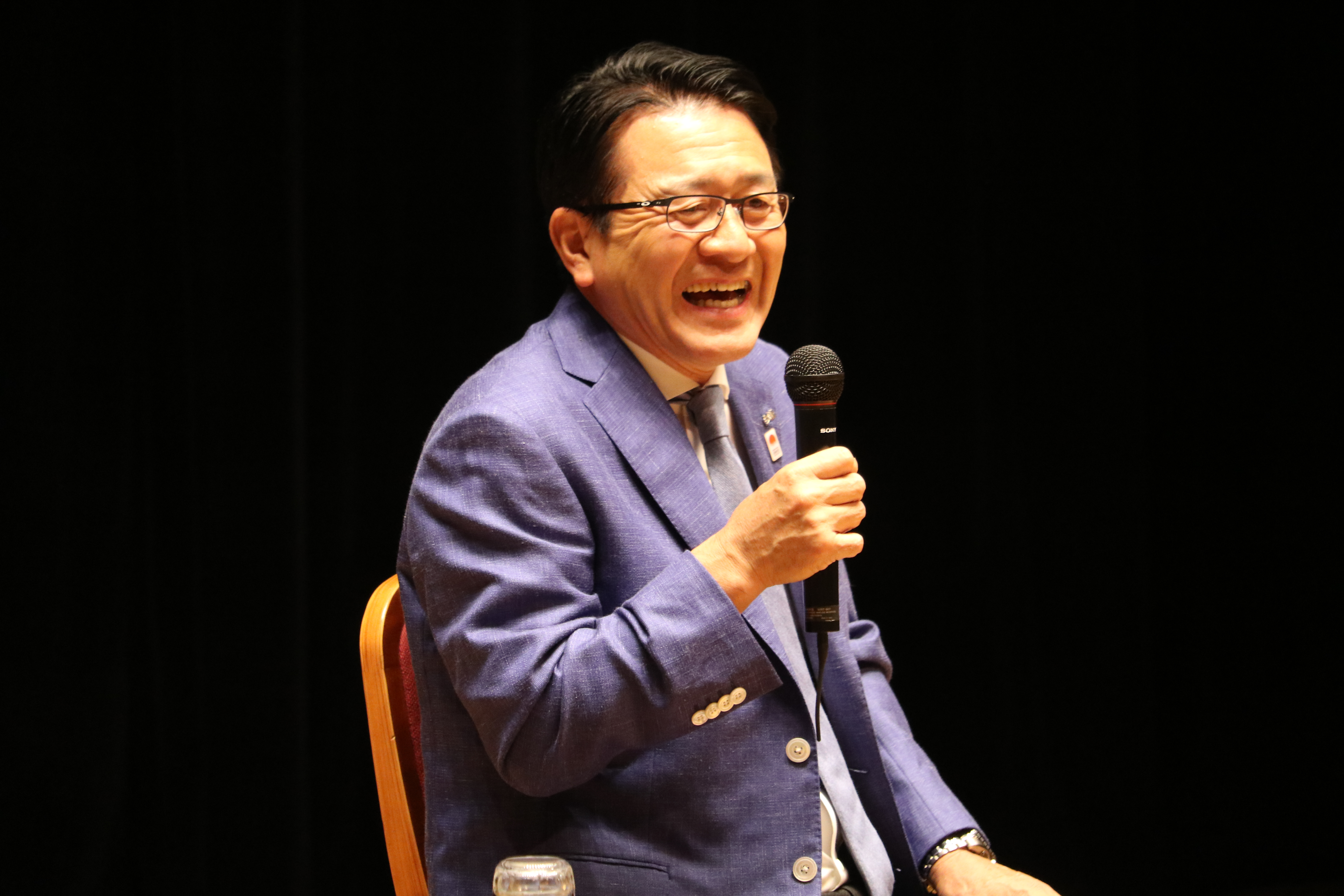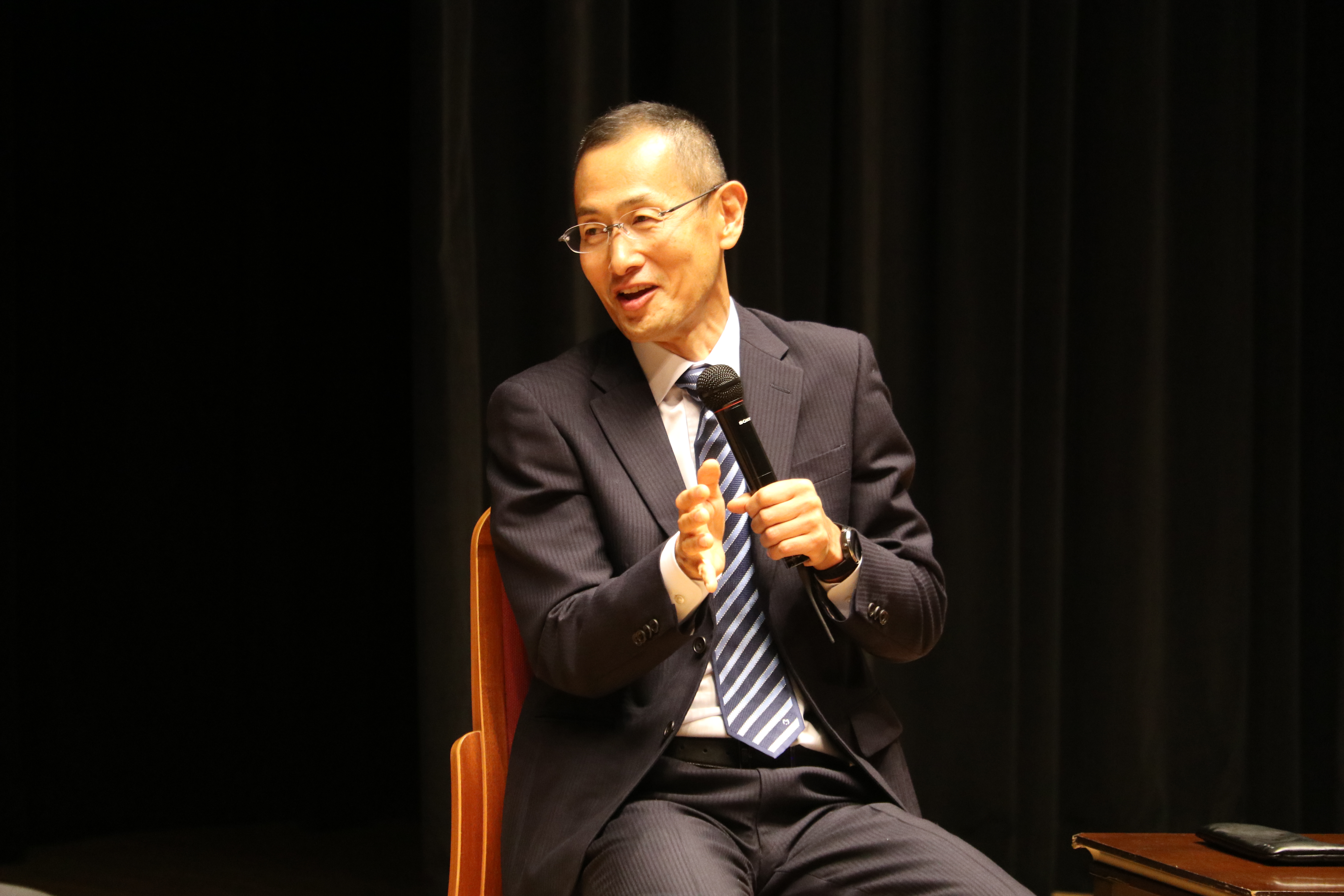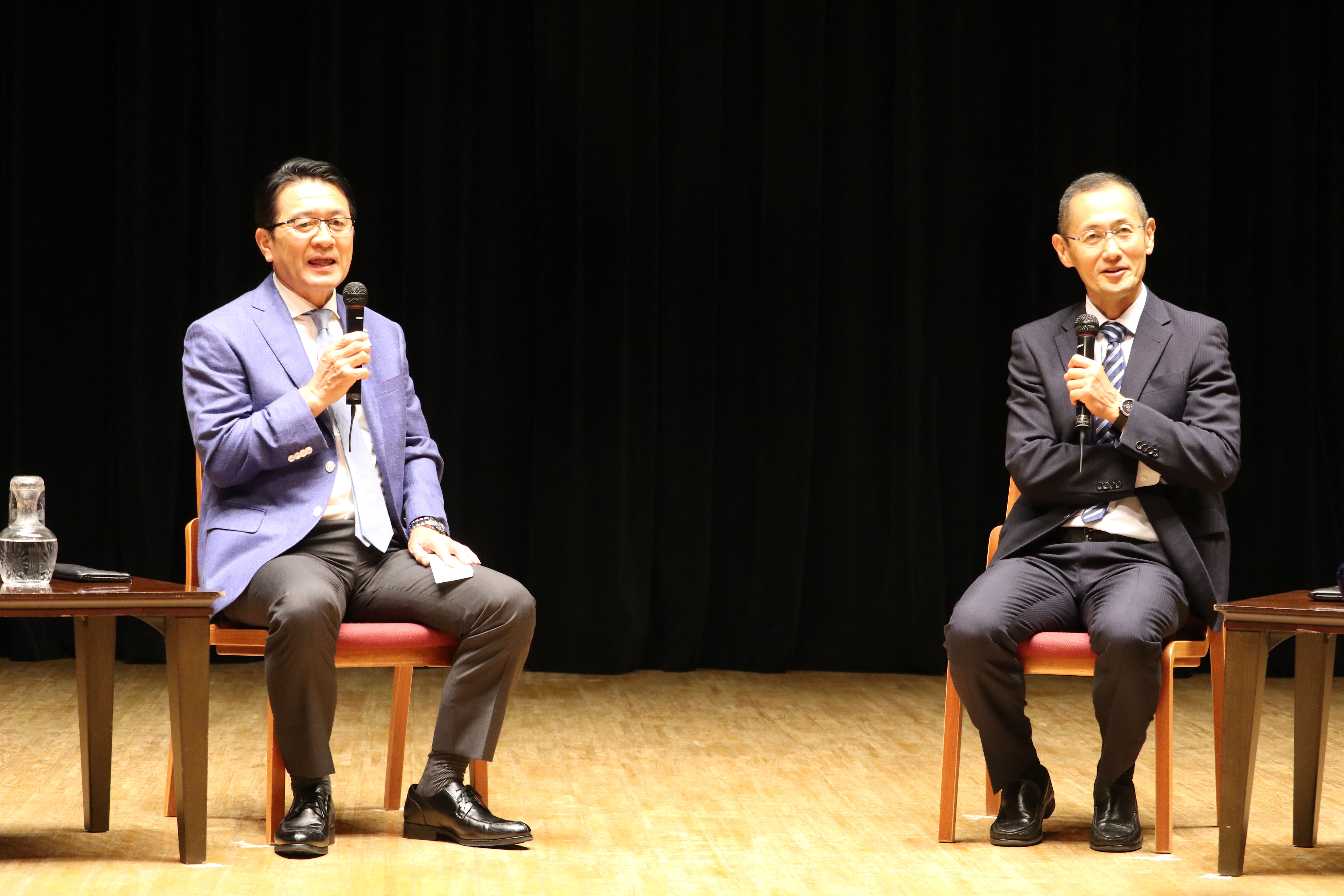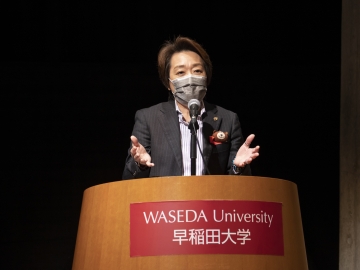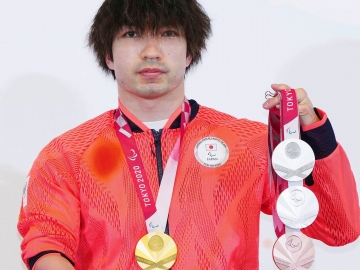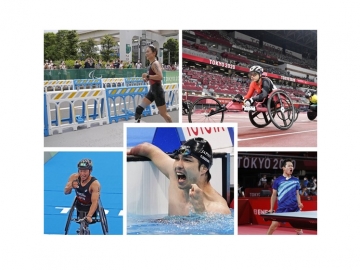In advance of the Marathon Grand Championship (MGC), which decides who will run in the marathon for Japan at the Tokyo 2020 Olympics, a special conversation entitled “Talking about life and marathons” was held at the Masaru Ibuka Auditorium. Waseda alumni and leader of the Japan Association of Athletics Federations Marathon Development Project, Toshihiko Seko, and Shinya Yamanaka, Nobel Prize winner, director of the Center for iPS Cell Research and Application at Kyoto University, and a running enthusiast, engaged in a passionate talk on the subjects of life and marathons.
Prior to their discussion, they each gave their own presentation. Mr. Seko started off with a presentation titled, “Features of the MGC” in which he spoke about the key points of the upcoming MGC. MGC is a new marathon runner selection system created by Mr. Seko, who had concern about the sluggishness the Japanese marathon world, and spoke about the four points of the system that are the conditions for Olympic contenders: stability, competitiveness, resistance to pressure, and a high ability to adjust. The MGC was created from the desire to unify the selection and development of athletes who meet these conditions. Based on the results of the selection committee held prior, 31 men and 12 women made through the first round of selection, and will go on to compete for a place to run for Team Japan in the September 15 MGC. Seko noted that the MGC makes “even the smallest marathon the most exciting race in Japan.”

He also mentioned that the MGC does not have a pacesetter, so there is no way to read how the race will develop. He expected that the 25 km point past Tokyo Tower, the 32 km point in front of the Imperial Palace, and the slope at the 40 km point will be factors in determining the winner. Runners to watch in the men’s marathon are Suguru Osako (Nike), a Waseda alumni, Yuta Shitara (Honda), Hiroto Inoue (MHPS), and Yuma Hattori (Toyota Motor). As for runners to watch in the women’s marathon, Seko listed Ayuko Suzuki (Japan Post Group), Mizuki Matsuda (Daihatsu), Honami Maeda (Tenmaya), and Reia Iwade (Under Armour), and also pointed out the characteristics of each runner.
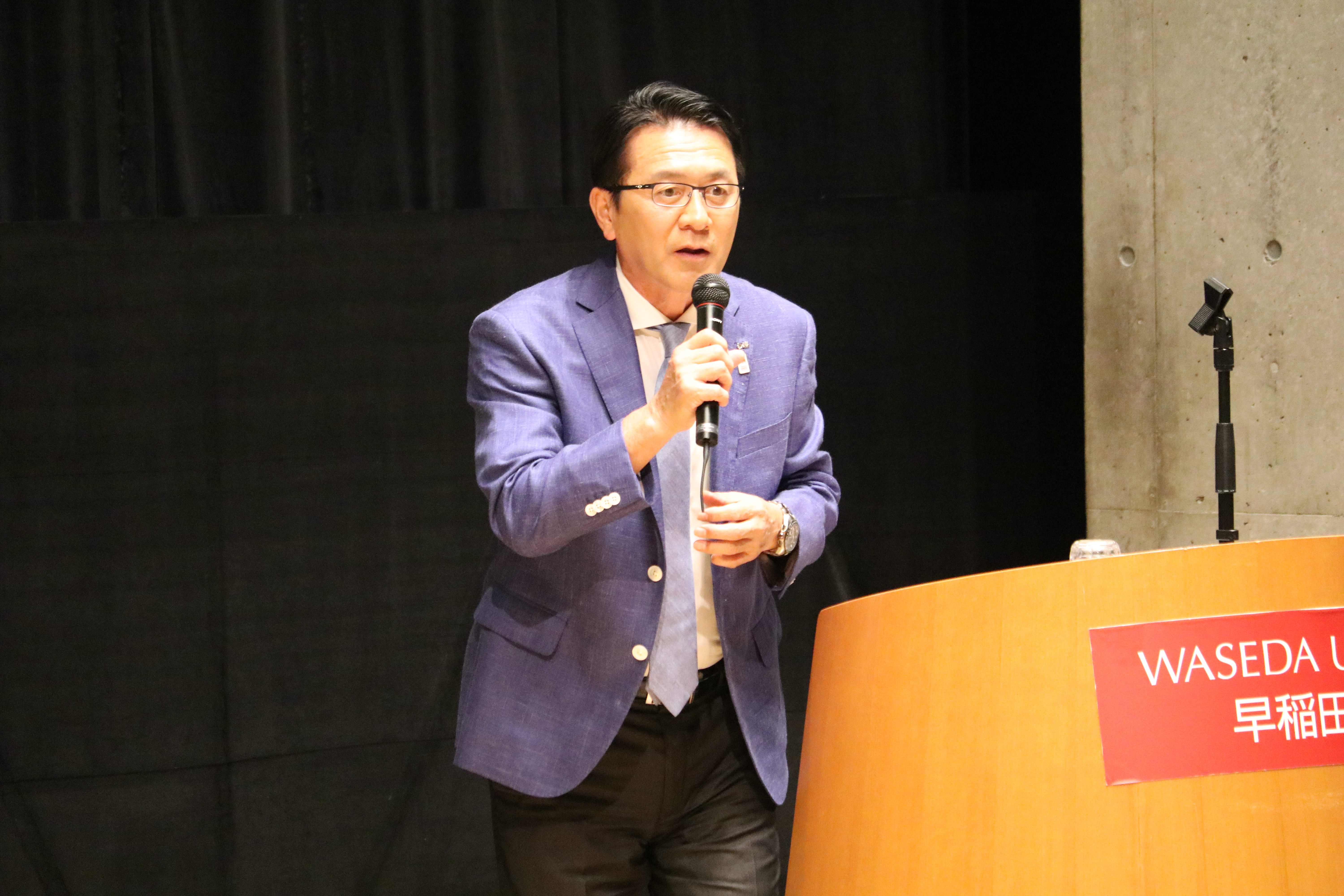
Following, Mr. Yamanaka presented on “New medicine opened by iPS cells,” that straddled the marathon and research in the medical field. He started his presentation on the Fukuoka International Marathon in 1979 as the most memorable marathon race for him. This was the marathon that Mr. Seko won and which sent him to the Moscow Olympics. Mr. Yamanaka is known for receiving the Nobel Prize in Physiology or Medicine, but he also loves marathons and is himself a runner. According to Mr. Yamanaka, “Research is an ultra-long-distance marathon.” In particular, he noted that researchers struggle over the course of 20-30 years to raise funds for research. So, he established the iPS Cell Research Fund to raise money for research by running marathons.
There have been many twists and turns in the 13 years since the discovery of iPS cells. He said that his current research appears to have “finally reached a turning point after what seemed to be a marathon.” He added, “Just like a marathon, research and development gets harder as you get closer to the finish line. But, it is important to keep on going, and I want to finish right up until the end.”
Following the presentations, the pair spoke from the perspective of leaders in the marathon and medical worlds. They told stories from their childhoods to their school days, reflecting back on the progress they have made so far while looking to the future. In closing, Mr. Yamanaka ended with, “I am looking forward to a marathon medal in the Tokyo Olympics.” Their conversation was full of humor and a lively talk that ranged from the serious, which had the audience listening intently, to the occasional outbursts of laughter.
